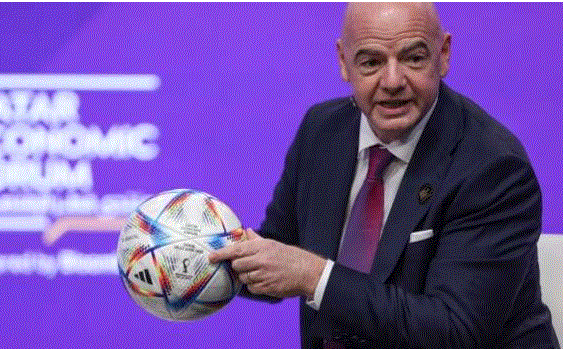(Bloomberg) — Dallas is making a bid to host the 2026 World Cup final, challenging larger and more glamorous cities such as New York and Los Angeles. Spearheaded by Dan Hunt, the leader of the Dallas initiative and heir to a Texas oil magnate, the plan aims to sell up to 200,000 tickets across multiple venues, utilizing state funds to secure the opportunity. The proposal outlines AT&T Stadium, home to the Dallas Cowboys, as the primary location for the final – a venue associated with one of the world’s most valuable sports franchises.
The competition revolves around the prestige of hosting one of the globe’s most adored sporting events, which garnered approximately 1.5 billion TV viewers during the previous tournament, according to FIFA. Beyond the bragging rights, hosting the final promises a significant economic influx from soccer enthusiasts converging on the host cities. With the U.S. co-hosting the tournament alongside Canada and Mexico, the competition among American cities for the highest-profile matches is fierce, with location announcements expected soon.

Dallas distinguishes its bid by accessing funds from the Texas Event Trust Fund Program, a state initiative. Monica Paul, executive director of the Dallas Sports Commission, emphasizes that this financial support would contribute substantially to covering the costs of hosting the final. However, the city faces formidable competition from more renowned U.S. cities that FIFA traditionally favors when selecting locations for its premier events.
Despite contenders like the Rose Bowl and SoFi Stadium in Los Angeles, which hosted the final in 1994, logistical challenges may hinder their suitability. SoFi Stadium, for instance, falls short of FIFA’s specifications, requiring alterations that could impact its revenue-generating capacity. Meanwhile, other U.S. cities, including Miami, Atlanta, and the San Francisco Bay area, are also in contention.
The frontrunners for the final are believed to be stadiums in the suburbs of New York and Dallas, with MetLife Stadium in New Jersey having slightly more seating, while AT&T Stadium in Texas holds an advantage when standing-room tickets are considered. FIFA President Gianni Infantino visited both stadiums in September, underscoring the significance of these choices.
The New York and New Jersey bid emphasizes the region’s experience in hosting major events, the allure of a global city, and a diverse population with established fan bases for many countries. In contrast, Dallas relies on its state-funded initiative, showcasing venues and the potential for innovative events with a substantial capacity. The competition also highlights the differences in transportation infrastructure, with the New York area promoting its comprehensive public transportation system, while car-centric Dallas offers free transportation for participants, staff, and media during the tournament.
Potential challenges for Dallas include the Texas summer heat, but the retractable roof and air conditioning at AT&T Stadium provide a solution for attendees. The bid also addresses concerns about transportation in Arlington, located between Dallas and Fort Worth, by offering free travel to various event locations. Additionally, the proposal explores the unique idea of utilizing multiple venues in the vicinity, potentially accommodating an unprecedented 200,000 ticketed attendees for a World Cup final event.

